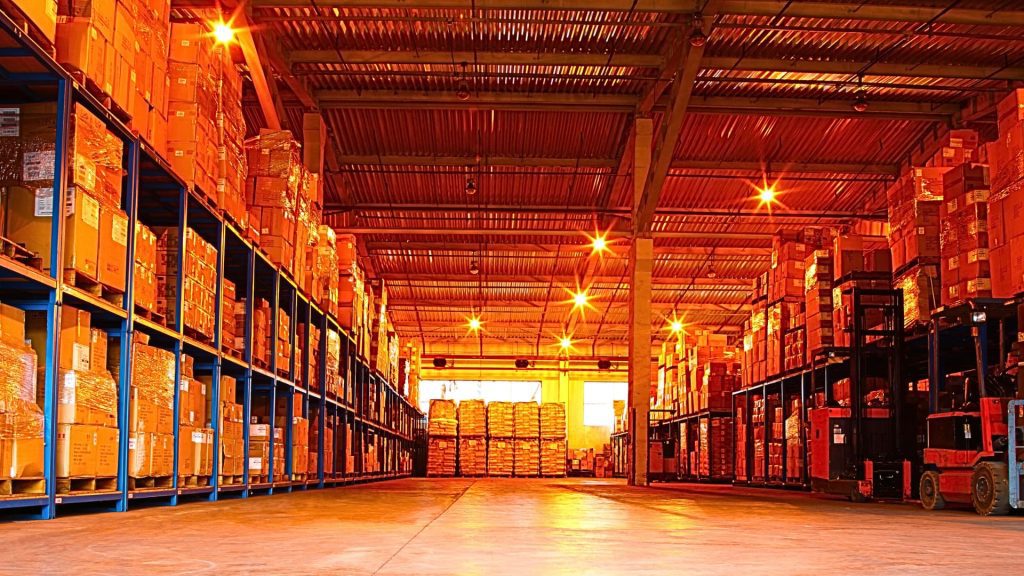
Saudi Arabia’s logistics market has experienced significant growth in recent years. As the Kingdom seeks to position itself as a global logistics hub, warehousing plays a crucial role in meeting the needs of a rapidly evolving supply chain. The rise of e-commerce, ongoing infrastructure developments, and government initiatives like Vision 2030 have all contributed to the booming logistics industry. Warehousing, in particular, has become a pivotal component in the success of logistics, freight forwarding, and supply chain management across the region.
In this blog, we’ll dive deep into the role of warehousing in Saudi Arabia’s growing logistics market, why it’s essential, and the future outlook for warehouse operations in the country.
Understanding the Importance of Warehousing in Saudi Arabia’s Logistics Market
Warehousing is an essential part of the logistics industry, providing storage, inventory management, and distribution services. In Saudi Arabia, its significance has surged due to several key factors:
1. E-commerce Growth
The rapid growth of e-commerce in Saudi Arabia has led to an increased demand for warehousing facilities. With online shopping becoming a major part of consumer behavior, businesses are relying on warehouses for efficient inventory storage, order fulfillment, and distribution. In fact, as online retail continues to grow, the role of warehouses in meeting last-mile delivery demands becomes even more critical.
2. Vision 2030 and Infrastructure Development
Saudi Arabia’s Vision 2030 is focused on transforming the Kingdom into a global logistics hub. As part of this initiative, significant investments are being made to improve logistics infrastructure, including the development of modern warehouses. This vision aligns with Saudi Arabia’s ambition to enhance trade routes, improve supply chain efficiency, and create a competitive edge in the global logistics market.
3. Strategic Location
Saudi Arabia’s geographical location makes it a key player in the global supply chain. Positioned between Europe, Asia, and Africa, the Kingdom acts as a bridge for goods moving across these regions. The availability of efficient and strategically located warehouses helps businesses manage the distribution of goods more effectively, supporting both domestic and international trade.
Key Benefits of Warehousing in Saudi Arabia’s Logistics Sector
As the logistics industry in Saudi Arabia grows, the benefits of modern, well-managed warehousing operations become more evident:
1. Optimized Inventory Management
Effective warehousing is essential for efficient inventory management. With advanced warehousing solutions, businesses can better track their stock levels, minimize excess inventory, and reduce the chances of stockouts. This leads to improved supply chain efficiency, timely deliveries, and cost reductions.
2. Cost Efficiency
Warehouses allow companies to store goods in bulk, reducing the costs associated with transportation and distribution. By consolidating goods in strategically placed warehouses, businesses can reduce the overall cost of last-mile delivery, which is essential for optimizing supply chains in Saudi Arabia’s diverse market.
3. Speed and Flexibility
Modern warehousing facilities support a fast and flexible logistics operation. They allow businesses to scale their storage capacity and adjust according to demand fluctuations. For example, seasonal fluctuations or promotional campaigns can impact inventory levels. Warehouses provide the flexibility needed to adapt quickly to these changes, ensuring timely delivery and customer satisfaction.
4. Support for Freight Forwarding
Freight forwarding relies heavily on efficient warehousing to manage the storage and distribution of goods. In Saudi Arabia, warehousing allows freight forwarders to store goods temporarily while coordinating their next move, whether by sea, air, or land. This synergy between warehousing and freight forwarding ensures smooth, efficient, and timely transportation of goods.
Innovations and Trends in Saudi Arabia’s Warehousing Sector
Saudi Arabia’s logistics industry is not just growing; it is evolving. New technologies and trends are shaping the future of warehousing, making it more efficient and effective. Here are some key innovations in the warehousing sector:
1. Automation and Robotics
Automation in warehouses is rapidly transforming the logistics landscape in Saudi Arabia. Automated storage systems, robotic picking, and sorting technologies are improving efficiency, accuracy, and speed. This automation also reduces the dependency on human labor, improving safety and cutting operational costs.
2. Internet of Things (IoT) and Real-Time Tracking
IoT has made it possible to track inventory in real time. Sensors and connected devices provide real-time data on goods stored in warehouses, helping logistics companies monitor stock levels, optimize routes, and ensure timely deliveries. This improves overall supply chain visibility and performance.
3. Sustainable Warehousing
With increasing global awareness of environmental issues, sustainable warehousing practices have become essential. Energy-efficient buildings, eco-friendly packaging, and the use of renewable energy sources are becoming more common in Saudi Arabia’s warehouses. Sustainable warehouses help businesses reduce their carbon footprint and meet government and international environmental standards.
The Future of Warehousing in Saudi Arabia
The future of warehousing in Saudi Arabia looks promising. With Vision 2030 driving a national push for logistics and infrastructure growth, the demand for advanced warehousing solutions is expected to rise. The growth of e-commerce, coupled with technological advancements, will further fuel this demand.
Furthermore, Saudi Arabia’s commitment to developing world-class logistics infrastructure, including the expansion of ports and airports, will ensure that the Kingdom remains an attractive destination for logistics investment.
FAQs
1. What is the role of warehousing in Saudi Arabia’s logistics market?
Warehousing plays a vital role in Saudi Arabia’s logistics market by offering storage, inventory management, and distribution services. It supports e-commerce growth, facilitates freight forwarding, and improves supply chain efficiency.
2. How is warehousing in Saudi Arabia evolving?
Warehousing in Saudi Arabia is evolving through the adoption of automation, robotics, and IoT technologies. These innovations are improving operational efficiency, inventory tracking, and overall supply chain management.
3. How does warehousing contribute to freight forwarding?
Warehouses support freight forwarding by providing temporary storage for goods while they are being transported. They help optimize inventory management, reduce storage costs, and ensure timely and efficient delivery of goods.
4. What are the key benefits of warehousing in Saudi Arabia?
The key benefits of warehousing in Saudi Arabia include optimized inventory management, cost efficiency, speed, flexibility, and support for freight forwarding. These benefits help companies streamline their supply chains and reduce operational costs.
5. What are the future trends in warehousing in Saudi Arabia?
Future trends in warehousing in Saudi Arabia include increased automation, sustainable practices, and the use of IoT for real-time tracking. These trends will improve warehouse efficiency and contribute to the growth of the logistics industry.
Warehousing plays a critical role in Saudi Arabia’s growing logistics market. As the Kingdom continues to evolve into a global logistics hub, the importance of advanced, efficient warehousing solutions will only increase. Fast n Accurate Logistics’ strategically located Al Khumra warehouse streamlines logistics across Saudi Arabia by enabling secure, client-supervised packaging and stuffing. Our facility enhances supply chain efficiency with consolidated container management and cargo safety assurance. By leveraging innovations in technology and focusing on sustainable practices, Fast n Accurate is well-positioned to support the demands of the modern supply chain





